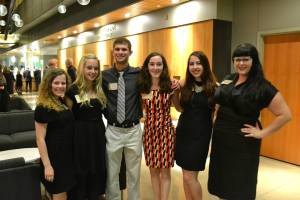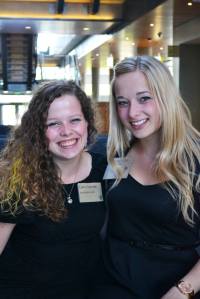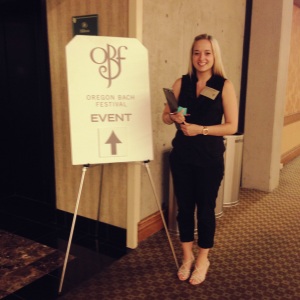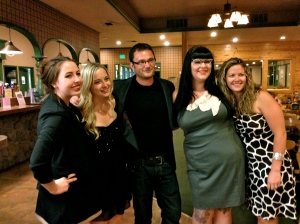The first time I ever heard of the Oregon Bach Festival was when I first drove by the billboard on Franklin Boulevard, on my way to audition for a spot at the UO School of Music. Little did I know that a few short years later, I would not only be interning for the organization, but also learning an incredible amount while having the time of my life.
Spanning from May through July, I served as one of the donor relations interns, alongside Carrie Garrison, a sophomore violinist from Salem. We assisted the development staff with a variety of tasks that ranged from the mundane to the exciting and high-pressure responsibilities that one would expect at such a busy festival. No matter how small or large the task was, however, it was always a vital part of one of the many development events that took place throughout the festival.
One such event that will always stand out to me was one called Meet the Musicians that took place after the concert on July 2, A Night at the Opera. Before the festival began, Carrie and I began tracking RSVP’s from donors and musicians who planned to attend the event. We then were given the job of figuring out a way to encourage donors and musicians to interact with one another. In the end, we created table centerpieces that were trivia questions drawn from both the program notes and opera history, with envelopes on the back containing the answer. It was a rewarding experience to see a project all the way through and then to see guests at the event actually discussing the trivia questions.
In that one night at Meet the Musicians, I had met major donors, talked with guest artists and felt closer to the rest of the OBF staff. Those experiences only increased in number throughout the festival and I began to realize how much I loved interacting with the array of people you meet and work with in that kind of environment. OBF opened my eyes to the world of arts organizations and I’m already itching for more. It’s safe to say that I will be a faithful audience member next season and while this is in part due to the fact that it will be Matthew Halls’ first official season as Artistic Director (!!), it is ultimately because OBF now has a special place in my heart. I can’t imagine not coming back.
Special thanks to Cassie, Patti, Lauren, Carrie and everyone else at OBF for the unforgettable experience!




